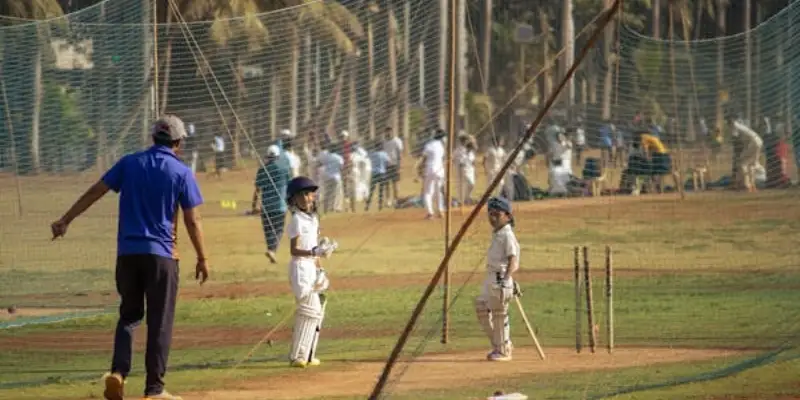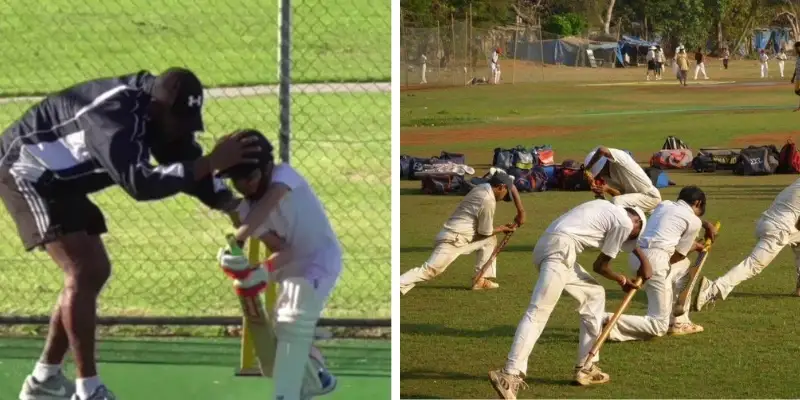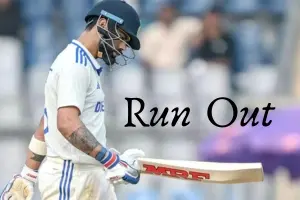9 Essential Skills Without Which Coaching In Cricket Can Only Be A Dream
Published: 22 Jan 2025
Cricket is not just a ball-to-ball game—it’s a sport that requires skill, strategy, and most importantly mental strength. Coaching plays a huge role in shaping a player’s game, from beginners learning the basics to professionals fine-tuning their techniques. A good cricket coach does more than just teach skills; he inspires, guides, and helps players work on their strengths, eliminate their weaknesses, and reach their full potential.
Whether it’s teaching young kids how to hold a bat, training teenagers for competitive matches, or helping professionals stay at the top of their game, coaching is essential at every level. The right coach can turn talent into greatness and make a lasting impact on a player’s career.

Role of a Cricket Coach
A cricket coach is more than just a teacher—they are mentors, strategists, and motivators. Their job is to develop player’s skills, build confidence, and prepare them for real match situations.
Teaching Core Skills
A coach helps players improve their batting, bowling, and fielding techniques. They work on correct posture, footwork, shot selection, and bowling variations to make players more effective on the field.
Building Fitness and Stamina
Cricket is a demanding sport, and fitness is the key. Coaches create training routines that include strength, agility, and endurance exercises to keep players in top shape.
Developing Match Strategies
Winning in cricket is not just about talent; it’s about smart decision-making. Coaches teach players how to analyze the situation and the opposition, set fielding placements, and choose the right tactics for different situations.
Mental Strength and Motivation
Handling pressure is crucial in cricket. A coach trains players to stay focused, confident, and resilient, especially in high-pressure moments like a tense run chase or a crucial over.
Teamwork and Leadership
Cricket is a team sport, and a coach ensures that players understand the importance of communication, collaboration, and leadership on and off the field.
Types of Coaching in Cricket

Cricket coaching isn’t the same for everyone. Different levels of the game require different coaching methods. From beginners to international stars, every player needs the right kind of training to grow. Here are the main types of coaching in cricket:
Grassroots Coaching (Beginner Level)
This is where young players take their first steps in cricket. Coaches at this level focus on basic skills like batting, bowling, fielding, and running between the wickets. The aim is to make the game fun while teaching the fundamentals.
Example: A school or club coach teaching kids how to hold a bat or bowl with the correct action.
Club and Academy Coaching (Intermediate Level)
At this level, players already know the basics, so coaching focuses on refining techniques and improving fitness. Coaches work on game awareness, discipline, and teamwork.
Example: A state or county cricket academy training young talents to prepare them for competitive matches.
High-Performance Coaching (Professional Level)
This is for cricketers who play at the domestic or international level. Coaching here is detailed and data-driven, with a focus on strategy, mental strength, and advanced skills.
Example: An international team’s batting coach working on a player’s weaknesses using video analysis.
Specialist Coaching
Some coaches focus only on specific skills like:
Batting Coaches – Help players perfect their shots and footwork.
Bowling Coaches – Teach different bowling techniques and strategies.
Fielding Coaches – Improve catching, throwing, and agility.
Strength & Conditioning Coaches – Focus on fitness, injury prevention, and stamina.
Mental Conditioning Coaches – Help players stay confident and focused under pressure.
Online and Personal Coaching
With technology, coaching is no longer limited to the field. Many players now take online coaching lessons or hire personal coaches for one-on-one training.
Example: A young cricketer taking virtual lessons from an experienced coach through video calls.
Top 9 Key Skills a Cricket Coach Must Have
A great cricket coach is more than just a teacher—they are a mentor, strategist, and motivator. Whether coaching beginners or professionals, a coach needs specific skills to bring out the best in players. Here are the 9 key skills every cricket coach must have:
1. Deep Knowledge of the Game
A coach must understand cricket inside and out—rules, techniques, strategies, and match situations. They should be able to break down complex concepts into simple instructions.
Example: A coach explaining how to adjust a batting stance to play against fast bowlers.
2. Communication Skills
Clear and effective communication is crucial. A good coach must know how to explain techniques, give feedback, and motivate players in a way they understand.
Example: Encouraging a young player after a poor performance and helping them regain confidence.
3. Technical Expertise
A coach must have a strong grasp of batting, bowling, fielding, and wicket-keeping techniques. They should identify mistakes and suggest improvements.
Example: Teaching a bowler how to improve their run-up for better accuracy.
4. Leadership & Motivation
Players look up to their coach for guidance. A great coach inspires, builds team spirit, and keeps players motivated, even after defeats.
Example: A coach reminding players to stay positive after a tough defeat.
5. Adaptability
Every player is different, and a coach must adjust their training style based on skill levels, positions, and game situations.
Example: Using different coaching techniques for a young beginner versus an experienced professional.
6. Patience & Mentorship
Unlearning old techniques and learning new ones in cricket take time, and a good coach must be patient and supportive. They need to build trust with players and help them grow.
Example: A coach working patiently with a struggling batsman until they gain confidence.
7. Fitness & Conditioning Knowledge
Cricket is a physically demanding game. Coaches must focus on strength training, endurance, injury prevention, and recovery techniques to keep players in top fitness.
Example: Designing a fitness routine to improve a fast bowler’s stamina.
8. Tactical & Strategic Thinking
Beyond technique, a coach must be able to analyze opponents, plan match strategies, and make in-game decisions to outplay the competition.
Example: Changing field placements to counter an aggressive batsman.
9. Use of Technology & Data Analysis
Modern cricket uses video analysis, tracking software, and performance data to improve skills. A coach should be comfortable using these tools.
Example: Studying video footage to correct a player’s footwork and bowling action.
How to Become a Cricket Coach
Becoming a cricket coach is an exciting journey that blends passion, knowledge, and dedication. Whether you’re starting with a local team or aiming for professional coaching roles, there are clear steps to follow. Let’s break it down:
1. Develop a Deep Understanding of the Game
To be a good coach, you need to have a strong foundation in cricket—its rules, techniques, and strategies. You don’t have to be an international player, but experience and knowledge of the game are essential.
Tip: Play as much as you can to get firsthand experience and understand the challenges players face. This will help you guide them effectively.
2. Get Qualified with Coaching Certifications
The first step to becoming a coach is obtaining coaching qualifications. Many cricket boards, such as the ICC or national cricket associations, offer coaching programs. These programs teach you the fundamentals of coaching, including training plans, drills, and communication skills.
Example: In the UK, the ECB (England and Wales Cricket Board) offers coaching levels starting from Level 1 to Level 3, with each level increasing your knowledge and ability to work with players.
Tip: Start with a Level 1 course if you’re new, and progress as you gain experience.
3. Gain Practical Experience
Theoretical knowledge is important, but hands-on experience is where you truly grow as a coach. Start by coaching junior teams or assisting an experienced coach. This allows you to apply your skills in real situations and learn by doing.
Tip: Volunteer at local cricket clubs or schools to build your coaching portfolio.
4. Develop Leadership and Communication Skills
A cricket coach must be more than just a good strategist—they must be great leaders and communicators. You’ll need to motivate players, give clear instructions, and build a strong team environment.
Tip: Practice active listening, clear communication, and giving constructive feedback. Building trust with players is key to effective coaching.
5. Keep Learning and Stay Updated
The game of cricket constantly evolves, and so does coaching. Attend workshops, read books, and stay updated on the latest coaching techniques and strategies.
Example: Follow online courses, watch coaching webinars, and engage with other coaches to improve your skill set.
Tip: Joining coaching networks and cricket communities will expose you to new ideas and experiences.
6. Build a Coaching Style
Every coach develops their unique approach based on their experiences, personality, and strengths. Some coaches focus on technical aspects, while others emphasize mental toughness or teamwork.
Tip: Reflect on your strengths and decide which areas of the game you want to specialize in. Build your coaching style around your passion.
7. Keep Fit and Lead by Example
A cricket coach must set an example in terms of physical fitness and discipline. Staying in good shape will not only help you demonstrate drills but also show players the importance of health and fitness in cricket.
Tip: Practice basic fitness exercises and keep your energy levels high to lead by example.
8. Get Feedback and Improve
After every session, take time to reflect on what worked well and what didn’t. Ask for feedback from players and other coaches to understand how you can improve.
Tip: Continuous self-improvement is a hallmark of great coaches. Embrace feedback, adapt, and evolve.
Final Thoughts
Becoming a cricket coach requires dedication, knowledge, and constant learning. It’s not just about understanding the game—it’s about knowing how to inspire and guide players to reach their full potential. If you’re passionate about cricket and helping others, this could be a fulfilling career or hobby for you!
Ready to start your coaching journey? The players are waiting!

- Be Respectful
- Stay Relevant
- Stay Positive
- True Feedback
- Encourage Discussion
- Avoid Spamming
- No Fake News
- Don't Copy-Paste
- No Personal Attacks

- Be Respectful
- Stay Relevant
- Stay Positive
- True Feedback
- Encourage Discussion
- Avoid Spamming
- No Fake News
- Don't Copy-Paste
- No Personal Attacks





